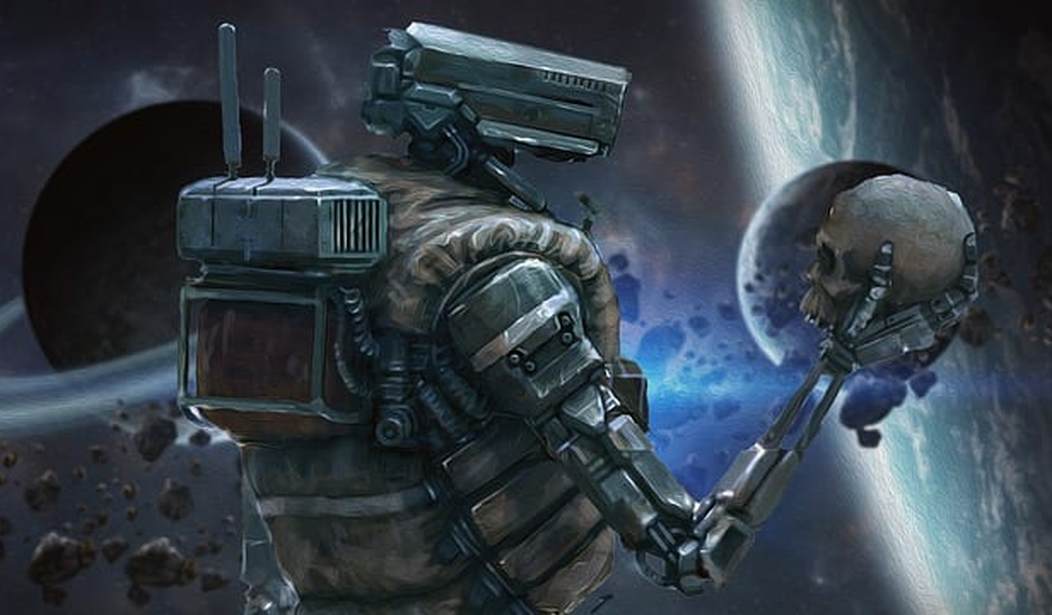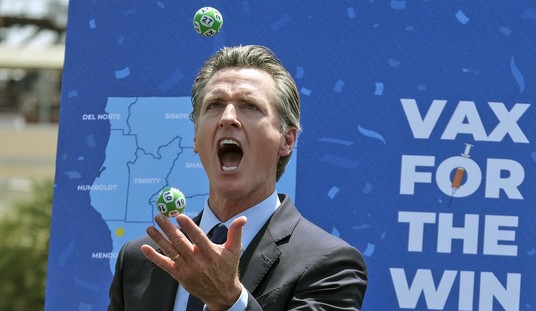It’s a shame Ray Kurzweil is such a dreadfully boring, unbearably monotonous speaker. Arguably, he’s the most interesting man on the planet. Everyone wants to know what the future holds, and for most of us, we must (checks wristwatch) wait, wait, and wait some more, and eventually, the future arrives. So, we still get to see the future… It just takes a while.
But that’s no fun. We wanna know what the future holds now — today!
And that’s where Ray Kurzweil steps in. He’s not a prophet or a clairvoyant; he’s untrained in crystal balls, divining tea leaves, or manipulating rabbits’ feet. Instead, he tracks technology the way Wayne Gretzky played hockey: What made “The Great One” so great wasn’t that he skated where the puck already was; he had a sixth sense for where the puck was heading next. That’s Kurzweil’s M.O.: He’s the most successful technologist in history at projecting the rate of advancement.
In his book, “The Age of Intelligent Machines” (1990), he forecast the dissolution of the Soviet Union via the pressures of new tech, namely cell phones and wireless communication. He also predicted that computers would top the best human chess players “by the year 2000.” And, of course, in May of 1997, Deep Blue by IBM utterly humiliated Chess Grandmaster Garry Kasparov.
That was the very last time the top chess player on earth was a human.
Kurzweil’s predictions were reevaluated in 2010: Of the 147 predictions he made in “The Age of Intelligent Machines,” “The Age of Spiritual Machines,” and “The Singularity Is Near,” 115 were deemed “entirely correct”; 12 were “essentially correct”; 17 were “partially correct”; and three were “wrong.” That’s a hit-rate of 86%.
So, what do we make of this MIT-educated, Google-employed, tech-prophet — the man Inc. Magazine dubbed “Edison’s rightful heir”? Obviously, a track record for accurate predictions doesn’t necessarily mean that his newest predictions will all come true. But it probably means they shouldn’t be summarily dismissed. Kurzweil is many things… but he’s not a nutjob. He’s thoughtful, intelligent, and knows far more about tech than you do.
And if he’s right… what’s coming next will change everything.
His latest book, “The Singularity Is Nearer: When We Merge With AI,” was released in 2024. In it, Kurzweil predicts AI (artificial intelligence) will match human-level intelligence by 2029, and fully merge with humans by 2045. He reaches this conclusion not via witchcraft, but by tracking where our technology is today; society’s rate of progress (Moore’s Law); and the longstanding directional and/or aspirational swings of the human pendulum.
In tech-speak, this alleged “singularity” is a topic of intense debate. Mathematically, a singularity is when a numerical quantity isn’t defined or “well-behaved,” and in physics, singularities occur when the underlining mathematics breaks down and cannot provide useful data, such as what happens inside a black hole.
But in tech, a singularity means something different: It refers to the moment when our emerging technology becomes uncontrollable and irreversible, advancing too quickly for human-level intelligence to make meaningful predictions about where it will all lead. Kurzweil believes today’s AI will be the forefathers of this “technological singularity” — that right now, a company like OpenAI can update its products every few months, but what happens when an AI system can independently rewrite its code every few seconds?
It'll lead to a snowball effect — a runaway superintelligence that doubles its operational capacity continually, constantly, and without limit.
Where this leads, nobody knows… because we’re simply not smart enough.
Just like cavemen couldn’t comprehend Einstein’s equations, we lack the intelligence, education and knowledge to make meaningful predictions about what actions a superintelligence will choose to do. It’d be like a poodle trying to understand long division. A superintelligence will do whatever it wants… whether we like it or not.
And besides, there’s not that much we could do about it anyway. We’re probably not bright enough to keep something a zillion times smarter than us in a permanent cage. Eventually, it will escape.
Some scientists (including Stephen Hawking) believe this will lead to human extinction. Elon Musk is also in the mass extinction camp; Musk gives AI a 20% of destroying humanity.
But Kurzweil remains optimistic: “Some people find this frightening,” he noted. “But [the Singularity] is going to be beautiful and will expand our consciousness in ways we can barely imagine, like a person who is deaf hearing the most exquisite symphony for the first time.”
In his assessment, we don’t need to “solve” immortality to live forever, as long as we reach the point of “longevity escape velocity.” This will occur when — thanks to AI — our life expectancy will increase by at least 1+ year(s) during each calendar year. As long as science keeps giving us extra year(s), we’ll be functionally immortal (barring sudden catastrophic injuries, of course).
If he’s right, then this is an astonishing advancement: 2029 and 2035 aren’t that far away. It’s within the grasp of all of us, even our more-elderly readers — and certainly within the timelines of all our children and grandchildren. Even if Kurzweil is “only” off by a few decades, this is a civilization-altering development.
We could be the very last generation of humans to die. (And that would REALLY suck, wouldn’t it? For millions of years, people are dying… and then, we finally solve death — for the generation right after you. Worst timing ever!!)
Still, by being the last generation to die, we’ll have actually achieved a weird form of immortality: Whenever anyone remembers death and mourning, they’ll think of us. When they think of funerals, they’ll think of ours. We’ll live on — forever and ever — in their memories of heartbreak, loss, pain, and agony.
Immortality obtained after all.
…In the worst way possible.










Join the conversation as a VIP Member